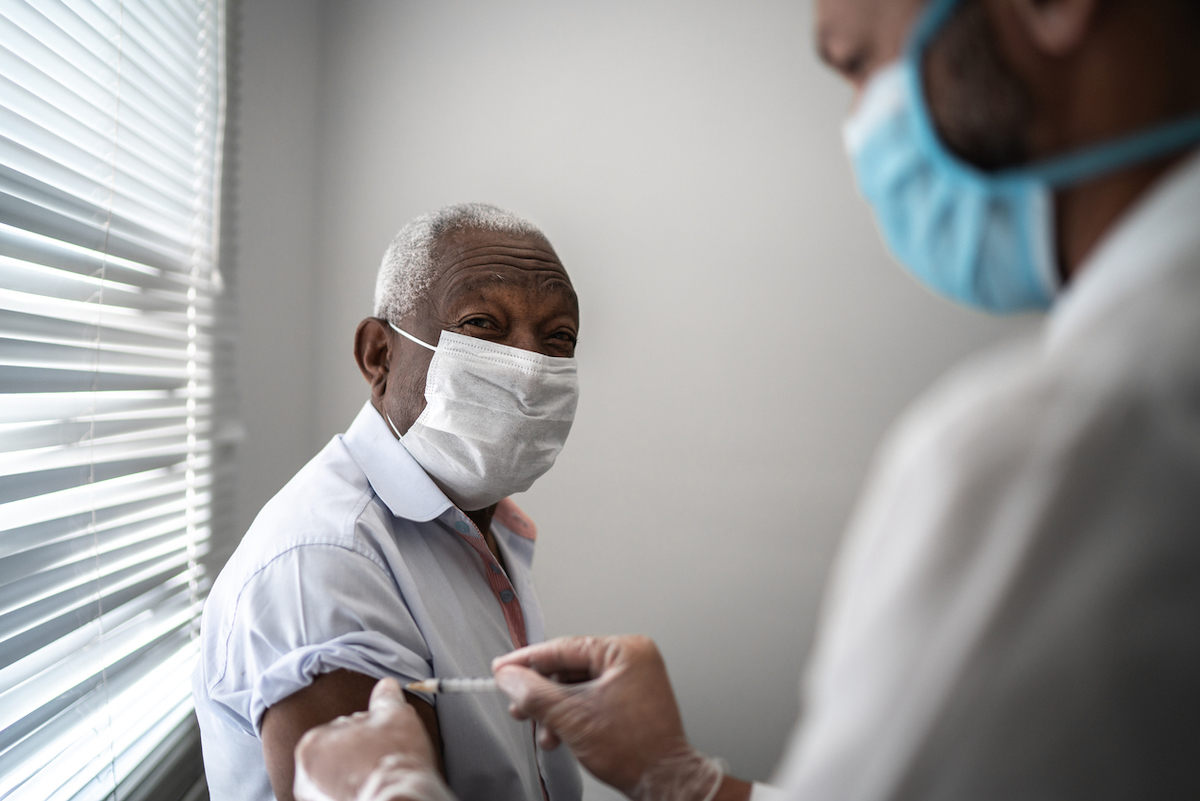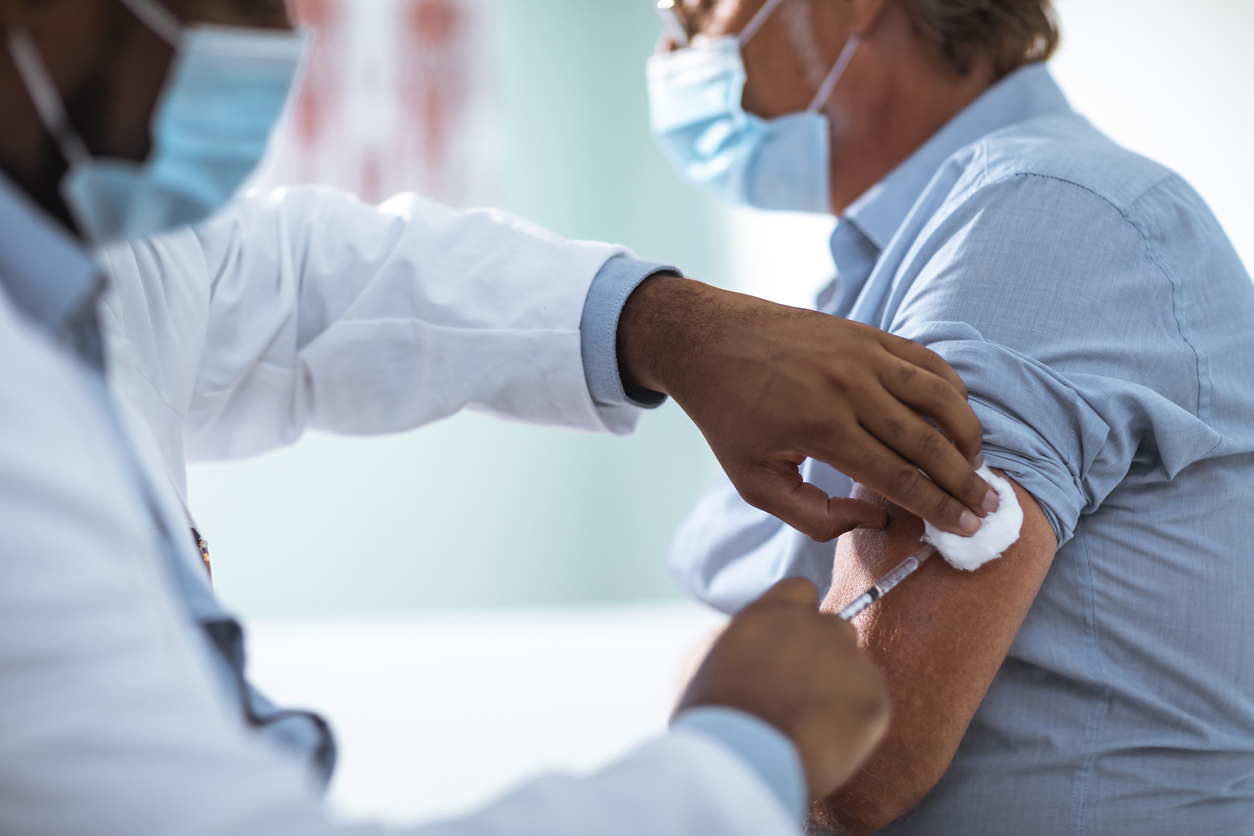A member of the advisory panel noted that he was specifically concerned about a development in Britain on the first day the vaccine was rolled out to high-risk patients and healthcare workers. “I’m worried about these severe anaphylactic reactions,” Paul Offit, MD, director of the Vaccine Education Center at Children’s Hospital of Philadelphia, said during discussion ahead of the committee’s vote, CNN reported. Read on for more on the adviser’s reservations, and for essential vaccine guidance, You Shouldn’t Do This Right After Getting a COVID Vaccine, Expert Warns. While discussing concerns with Pfizer’s proposed vaccine, Offit explained that the lack of information on the case of two healthcare workers who had severe allergic reactions to receiving the vaccine complicated public messaging around the safety of the inoculation. “We don’t know the details of those two cases,” he said during the meeting of the Vaccines and Related Biological Products Advisory Committee. “We don’t know specifically what it was they were allergic to, or what their history with severe allergies was.” And for more on how vaccination will work, This Is What Happens If You Only Get One Dose of the COVID Vaccine. Even though both healthcare workers have since fully recovered from their allergic reactions, Offit now worries that a large portion of the population will steer clear of getting theirs. This has become a more likely issue since Britain’s Medicines and Healthcare Products Regulatory Agency (MHRA) began advising that “any person with a history of a significant allergic reaction to a vaccine, medicine or food (such as previous history of anaphylactoid reaction or those who have been advised to carry an adrenaline autoinjector) should not receive the Pfizer BioNtech vaccine.“ae0fcc31ae342fd3a1346ebb1f342fcb “There are tens of millions of people in this country who carry EpiPens with them—because they have peanut allergies, because they have egg allergies—who are going to believe now that they can’t get this vaccine,” Offit said. “That’s a lot of people.” And for more up-to-date information, sign up for our daily newsletter. Still, Pfizer plans on including a similarly worded warning with their final product. “The fact sheet and the prescribing information will state that this vaccine should not be administered to individuals with known history of severe allergic reactions to any components of Pfizer’s COVID-19 vaccine and the warning statement will say appropriate medical treatment used to manage immediate allergic reactions must be immediately available in the event an acute anaphylactic reaction occurs following administration of the Pfizer COVID-19 vaccine,” Marion Gruber, MD, director of the Office of Vaccines Research and Review in the FDA Center for Biologics Evaluation and Research, said during the FDA’s advisory committee meeting on Dec. 10. “That has made it already in the fact sheets and prescribing information weeks ago,” Gruber added. “We, however, will consider any additional information that we’re going to be receiving over the next couple of days and factoring this into our decision-making.” And for more on how to stay safe before you get your shot, Dr. Fauci Says This One Thing Could Spread COVID More Than Anything Yet. So, how did scientists miss the potential side effect during development? Experts at Pfizer previously announced that the 44,000 volunteer participants in the Phase 3 trial of their vaccine had excluded anyone who specifically had experienced an allergic reaction to vaccines only, CNN reports. “The nature of what was actually excluded from the trial was really restricted to those individuals who had had a severe allergic reaction to a vaccine—any vaccine—previously, or obviously during the course of the trial if they’d gotten the first dose, and they had a significant type one hypersensitivity response, then that would preclude giving a second dose,” William Gruber, MD, senior vice president of vaccine clinical research and development at Pfizer, said. He also clarified that none of the patients were excluded from receiving their second doses. And for more on the limitations of the vaccine, The COVID Vaccine May Not Protect You From This One Thing, Experts Warn



